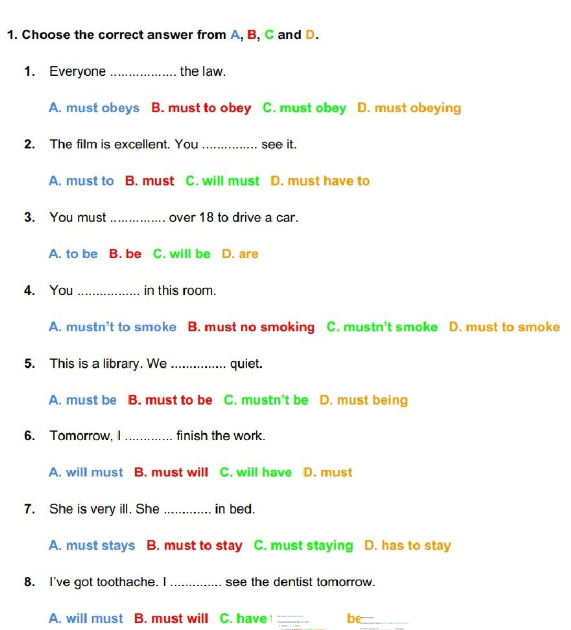Choose the correct answer from A, B, C and D for each sentence.

Understand the Problem
The question is asking for the correct usage of modal verbs in various sentences. It involves selecting the appropriate answer from the provided options based on grammatical rules.
Answer
["1: C","2: D","3: B","4: C","5: C","6: D","7: B","8: A"]
["1: C. must obey","2: D. must have to","3: B. be","4: C. mustn't smoke","5: C. mustn't be","6: D. must","7: B. must to stay","8: A. will must"]
Answer for screen readers
["1: C. must obey","2: D. must have to","3: B. be","4: C. mustn't smoke","5: C. mustn't be","6: D. must","7: B. must to stay","8: A. will must"]
More Information
Each sentence requires choosing a modal verb or verb form based on English grammar rules. Modals express necessity (must, mustn't) or future actions (will).
Tips
Common mistakes include misunderstanding modal verb usage and matching incorrect verb forms.
Sources
AI-generated content may contain errors. Please verify critical information